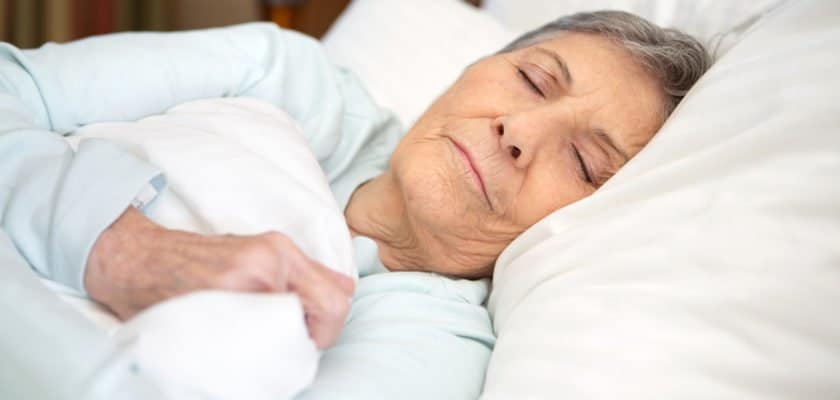7 Tips for A Better Night’s Rest

If you’re more worn out than usual, you might need additional sleep. But you also might need better sleep.
As we age, we face some challenges in getting sufficient, high-quality sleep that helps us feel fully rested. While you can’t control every factor that might negatively impact your sleep, you can develop some habits that help you wake up feeling much more refreshed.
Common Sleep Problems for Seniors
Seniors experience both physical changes and alterations in sleep patterns as a normal part of getting older. Sleep troubles can include difficulty falling asleep and staying asleep.
Many people think we need less sleep as we age, but the truth is that our sleep requirements stay fairly constant throughout our adult life at seven to nine hours per night. Changes to sleep patterns — also known as our sleep architecture — become more frequent with age, potentially causing or contributing to sleep problems.
Seniors experience a number of common sleep changes and disorders, including:
- Feeling drowsy earlier in the evening.
- Insomnia, which can cause problems with falling asleep or staying asleep all night.
- Sleep apnea, a disorder that causes an individual to stop breathing many times per night for 10 to 30 seconds.
- Periodic limb movement disorder, which causes kicking of the legs during sleep. An individual suffering from the condition may not know unless told by a partner, but the disorder interferes with sound sleep.
- Restless legs syndrome, which causes discomfort in the legs when sitting or lying down. The condition can make it difficult to fall asleep.
How Can You Get a Better Night’s Sleep?
If you have sleep problems, it’s important to see your doctor in case you’re suffering from a medical condition like sleep apnea. In addition, you can work to establish good habits that help you sleep better.
Get some exercise. Engaging in regular physical activity can help you get to sleep faster and sleep more deeply.
Avoid excessive napping. Long naps during the day can throw kinks into the quality of your sleep at night.
Kick stress to the curb. If your buzzing brain keeps you awake, work on some healthy strategies for managing stress, like delegating and becoming more organized.
Eat and drink lightly near bedtime. Feeling either starved or overly stuffed when it’s time for bed can affect your sleep quality. In addition, limit fluids late in the evening to avoid multiple trips to the bathroom overnight.
Take time to wind down. A bedtime ritual like taking a warm bath or enjoying a good book signals your body that it’s time to slow down and prepare for sleep.
Create an ideal sleep environment. For optimal sleep, your room should be quiet, dark and cool.
Sleep on schedule. Try to get to bed and wake up at consistent times every day to reinforce your body’s natural cycles.
By implementing these healthy habits, you can significantly increase your chances of sleeping restfully through the night — and greeting the new day with abundant energy! At The Vista, we’re committed to the health and wellness of seniors. To find out more about the active retirement lifestyle coming to Wyckoff, New Jersey, please contact us.
Get a great sleep into retirement in a place that cares for you and your health. Consider The Vista, a Continuing Care Retirement Community. The Vista will offer a range of programs and amenities to engage, entertain, and inspire you.
For more information about The Vista, please contact us today.

